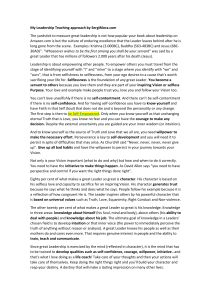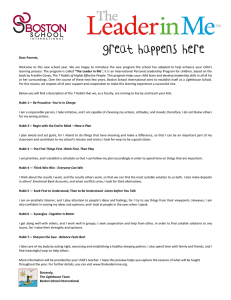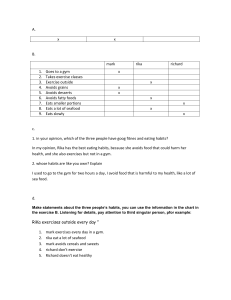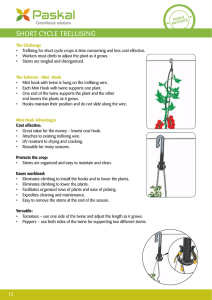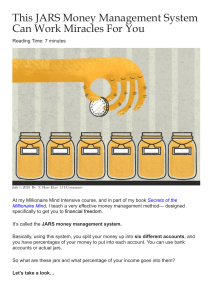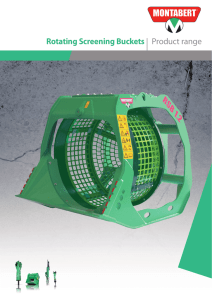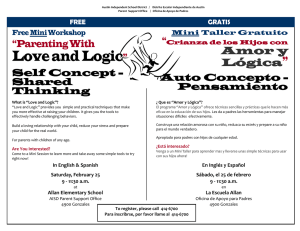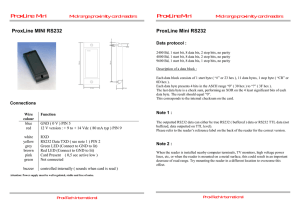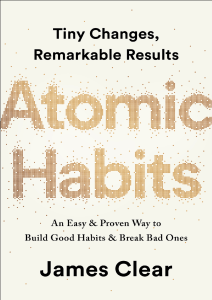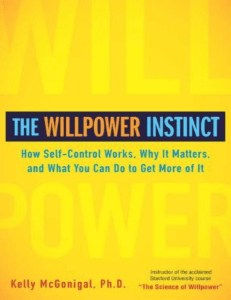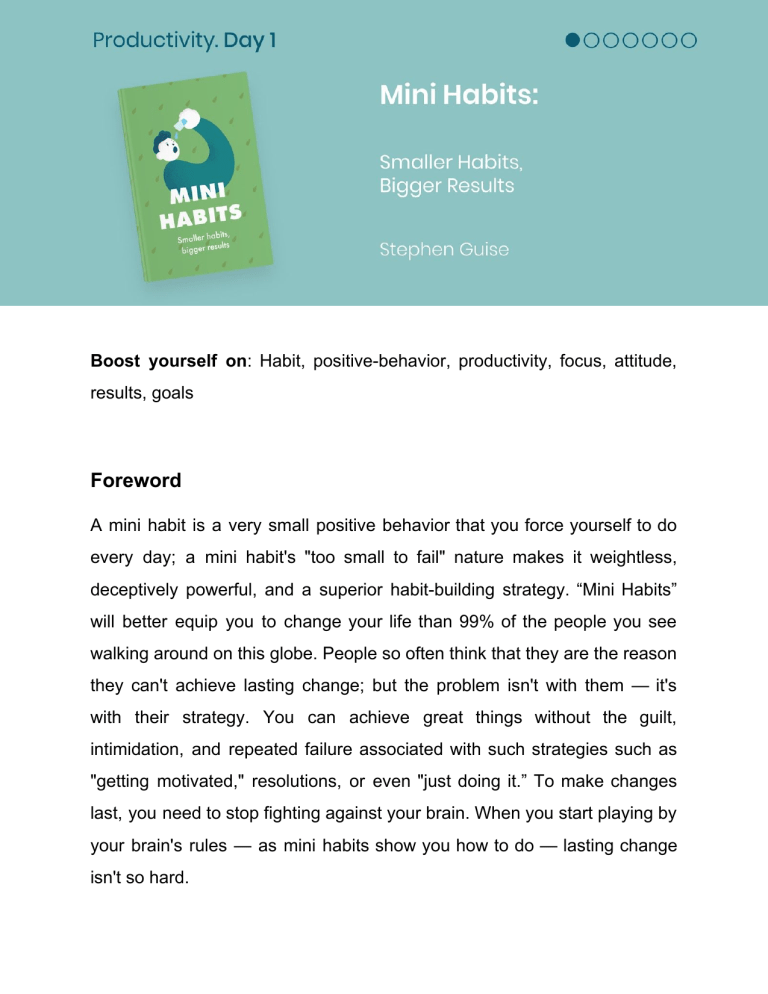
Boost yourself on: Habit, positive-behavior, productivity, focus, attitude, results, goals Foreword A mini habit is a very small positive behavior that you force yourself to do every day; a mini habit's "too small to fail" nature makes it weightless, deceptively powerful, and a superior habit-building strategy. “Mini Habits” will better equip you to change your life than 99% of the people you see walking around on this globe. People so often think that they are the reason they can't achieve lasting change; but the problem isn't with them — it's with their strategy. You can achieve great things without the guilt, intimidation, and repeated failure associated with such strategies such as "getting motivated," resolutions, or even "just doing it.” To make changes last, you need to stop fighting against your brain. When you start playing by your brain's rules — as mini habits show you how to do — lasting change isn't so hard. 1. Every great accomplishment rests on the foundation of what came before it: one small step that started it all A mini habit is basically a much smaller version of a new habit you want to form. 100 push-ups daily is minified into one push-up daily. Writing 3,000 words daily becomes writing 50 words daily. Thinking positively all the time becomes thinking two positive thoughts per day. Living an entrepreneurial lifestyle becomes thinking of two ideas per day (among other entrepreneurial things). “The journey of a thousand miles begins with one step.” ~ Lao Tzu Let’s start your first mini habit. Read at least two pages of this book every day until you finish it. You may read more than that, but never less. It won’t require much time or effort to read two pages, so there are no excuses. Now you can experience what it’s like to have a mini habit as you read about mini habits. Think about what the following truths mean for your life: 1. Big intentions are worthless if they don’t bring results. For example, you can say that you will exercise for two hours every day, but if you never do it, the size of the intention doesn’t matter. In fact, intention without action harms self-confidence. 2. People have been shown in studies to chronically overestimate their self-control ability. These two simple points reveal why so many people struggle to change. They have big ambitions but overestimate their ability to make themselves do what it takes to change. It’s a mismatch between desire and ability. Here are two more facts to consider: 1. Doing a little bit is infinitely bigger and better than doing nothing (mathematically and practically speaking). 2. Doing a little bit every day has a greater impact than doing a lot on one day. How much greater? Profoundly so, because a little bit, every day is enough to grow into a lifelong foundational habit, and those are a big deal, as you’ll see. Mathematically and practically speaking, doing a little bit is infinitely bigger and better than doing nothing. If these statements seem reasonable to you, the main conclusion to draw is that small intentions are better than big intentions. Interesting, right? We’re just getting started. Have you ever felt stuck? Have you ever tried to change yourself for the better and failed? Have you done it over and over again, and even stopped trying for long periods of time? We’ve all been there, consider these more interesting questions. What if your failure to take action and stick to your plan was never a problem with you, but a problem with your strategy — the strategy that most of the world uses and endorses? And what if the science about human behavior, willpower, and the brain suggested a better alternative for sticking to your plans — one that is rarely practiced or promoted? And what if a shift to this new strategy changed everything for you, and no matter how you felt, you knew you could take action, reach your goals, form good habits, and change your life? Welcome to the world of mini habits. 2. When you repeat a behavior over time, your brain learns to automate the process Repetition is the language of the (subconscious) brain. The goal of creating habits is to change your brain with repetition. But the brain will resist change unless they reward it handsomely. So really, the two keys to habit change as far as the brain is concerned are repetition and reward. It will be more willing to repeat something when there is a reward. Have you ever driven a car without power steering? You have to turn the wheel several rotations just to get a small response from the car. Our brains respond to change like cars without power steering. Each iteration results in a negligible difference but repeated consistently, these small alterations can create a big change in your brain (and your life). Your subconscious brain loves efficiency; this is why we have habits. When you repeat a behavior over time, your brain learns to automate the process. It’s more energy efficient to automatically do something than to manually weigh your options and decide to act the same way every time. When you repeat a behavior over time, your brain learns to automate the process. When you make a decision very quickly, it is probably from habit, even if you think you’re actively deciding. In a way, you made the decision a while ago. Choosing your favorite ice cream flavor is one example. Most of your brain is stupid. Well, not yours specifically—a certain part of every human brain is stupid, in the sense that it doesn’t consider lung cancer while you smoke or the perks of great abs before you exercise. Worse, this is the strong part of your brain that usually gets its way long term. It recognizes repeat patterns until told otherwise. It’s called the basal ganglia. There is another section of your brain; however, that is really smart. It’s called the prefrontal cortex, and it’s located behind your forehead. It’s the “manager” that understands long-term benefits and consequences, and thankfully, it has the ability to override the basal ganglia. It handles short-term thinking and decision-making too. The prefrontal cortex has the ability to override the basal ganglia. It handles short-term thinking and decision-making too. Dr. David Nowell, a psychologist, differentiates the prefrontal cortex from the rest of the brain. He says that everything except the prefrontal cortex determines “what is,” and the prefrontal cortex focuses on “what could be.” The only way to create habits is to teach the rest of your brain to like what the prefrontal cortex wants. The prefrontal cortex is what resists chocolate cake (if at all possible), wants to learn French, wants to be fit, and would like to write a book someday. It’s the conscious part of your brain that you’d identify as “you.” But the problem is that it tires out easily. The prefrontal cortex is the conscious part of your brain that you’d identify as “you.” But the problem is that it tires out easily. Perhaps more accurately, because its functions are so powerful, it’s an energy hog that tires you out. And when you tire out (or are stressed, as we covered), the repetitious part takes over. The basal ganglia isn’t conscious or aware of higher-level goals that are unique to humans. But it is an efficient pattern-repeater that saves us energy. So while it may not be “intelligent” like the prefrontal cortex, it is an incredibly important part of the brain. And once we train the basal ganglia to do positive behaviors automatically, we’re really going to love it. This is the system we all have to work with. It sounds poorly designed at first, as the smart prefrontal cortex has less stamina than the thoughtless, repeating basal ganglia do, but it’s actually brilliant when you know how to work it. How do clever weaklings ever overcome their dumb, strong counterparts? It’s not through brute physical force. I’m sure you already know that, perhaps, because you are now recalling the failed attempts of your conscious mind to control your subconscious mind by brute force or willpower. The answer, of course, is to employ smart strategies to overcome the prefrontal cortex’s natural weaknesses. 3. If getting motivated is your strategy, you can’t build habits Does getting motivated work? The answer is maddening sometimes. At times, you can conjure up the motivation to exercise or write 2,000 words, but other times, you might end up taking a nap, watching TV, or drinking beer instead. This is a huge problem because… If getting motivated is your strategy, you can’t build habits. We know that habits require consistent repetition. Don’t get this concept wrong. Motivation is an important feeling with many benefits. But think of it as a bonus, something nice when it appears. It’s possible you currently rely on getting motivated, it is unreliable. Motivation is unreliable because it’s based on how you feel, and we’ve known for centuries that human feelings are fluid and unpredictable. Many things can alter your feelings: an event, blood sugar levels, depression, chemical fluctuations, hormones, health, external stimuli, energy levels, beliefs, and cat vomit. In other words, anything can alter your feelings. Do you really want to place your hopes on something so... volatile? The #1 rule of any foundation is that it must be solid. Motivation is like building a house on liquid. Motivation is unreliable because it’s based on how you feel; human feelings are fluid and unpredictable. Why Willpower Beats Motivation The Mini Habits willpower strategy is very conducive to motivation, which, again, is good, but unreliable. I’ve found that by using willpower, motivation becomes more reliable; motivation comes fast when you take action first. There are three reasons why forcing yourself to take action with willpower is far better than trying to get motivated. 1. Willpower is Reliable Unlike motivation-based techniques, willpower is extremely reliable. If you force yourself to do something no matter what, that’s dependable. 2. Willpower Can Be Strengthened Unlike motivation, willpower can be strengthened like a muscle. Leading self-control researcher Professor Roy Baumeister found in 1999 that students who had exercised their willpower to improve their posture for two weeks, “showed a marked improvement on subsequent measures of self-control” compared to those who hadn’t worked on their posture. 3. Willpower Strategies Can Be Scheduled If you rely on motivation, you will have a difficult time sticking to a schedule. When it’s time to write, who knows if you’ll be motivated or not? It’s unpredictable and not calendar-friendly. Using willpower, though, you can schedule an activity and do it whether you are motivated at the time or not. This allows for consistency, which makes it a habit and calendar-friendly. Habits aren’t made from a general plan to write when you can or exercise when the stars align. You’ve got to put the task on your calendar and do it, and that requires willpower. An important meta-analysis of willpower A meta-analysis is a “study of studies” that attempts to extract important conclusions from the body of related work on a given topic. This helps to smooth out possible aberrations from individual studies. In 2010, a meta-analysis of 83 studies was done on ego depletion. Ego depletion essentially means the same thing as willpower or self-control depletion, so these terms are used interchangeably. From this meta-analysis, the five biggest factors found to cause ego depletion were effort, perceived difficulty, negative affect, subjective fatigue, and blood glucose levels. The five biggest factors found to cause ego depletion are effort, perceived difficulty, negative affect, subjective fatigue, and blood glucose levels. These factors, then, are the five biggest obstacles that keep us from sustaining success with a willpower based strategy. What do we do once we’ve exhausted our willpower? Is all hope lost then? According to the analysis, motivational incentives, training on self-control tasks, and glucose supplementation promoted better self-control of ego-depleted people. 4. How all five willpower threats are mostly or completely nullified by mini habits The Mini Habits strategy is forcing yourself to take 1-4 “stupid small” strategic actions every day. These actions are too small to fail and too small to skip for special occasions. They serve dual purposes — to spark you to do more, and to become (mini) habits. The Mini Habits strategy is forcing yourself to take 1-4 “stupid small” strategic actions every day. These actions are too small to fail and too small to skip for special occasions. Using Willpower, the Mini Habits Way There was a study on ego depletion that found some correlation between believing willpower is limited and willpower becoming limited. Those who didn’t believe their willpower had a limit appeared to last longer in ego depletion activities. If willpower is truly limited, then mini habits preserve it by starting small. But say that willpower is only limited by our belief that it’s limited. What would that mean for mini habits? It’s great news! You’ll believe you have unlimited willpower with mini habits because they require almost no willpower. So in the case that you’re bursting at the seams with willpower energy, mini habits will get you started and allow you to make great bonus progress. And in the case that you’re completely exhausted and out of willpower, mini habits will get you started anyway and allow you to make the most of your capabilities at the time. Let’s examine how all five of willpower threats are mostly or completely nullified by mini habits. Effort Mini habits require very little actual effort. You’re going to be doing one push-up, writing 50 words, reading two pages, or other very easy tasks. The subsequent bonus effort from overachieving is variable, meaning some days will be more productive than others. This is a natural structure that greatly reduces the chance of burnout. The Mini Habits system is both rigid and flexible in strategic places. It’s rigid in the beginning, forcing you to start, but it’s flexible after that, allowing you to decide how much extra you want to do. The initial effort requires hardly any willpower. Mini habits require very little actual effort. You’re going to be doing one push-up, writing 50 words, reading two pages, or other very easy tasks. Perceived Difficulty Mini habits have almost zero perceived difficulty by design, a primary benefit that compounds when you do extra. Setting mini goals is the best way to drop the perceived difficulty in any project. Once you start and are free to continue, your perceived difficulty will be much lower due to the psychological impact of having already started. Just like in physics, the greatest inertia comes before the start of motion. Once you’re in motion, everything gets easier as a result of momentum (and increased motivation). Mini habits have almost zero perceived difficulty by design, a primary benefit that compounds when you do extra. Negative Affect Negative affect simply means the experience of unpleasant feelings. As mini habits are for adding good things, negative affect is less relevant unless your action is directly replacing another pleasure. There is typically no ego depletion. Even if you’re replacing a pleasure with a mini habit, the commitment is so small that you won’t feel any negative affect from it. More often, you’ll be replacing time-wasting behaviors with beneficial ones, which induces a positive feeling. Subjective fatigue This is an interesting one, isn’t it? It doesn’t say fatigue; it says subjective fatigue, implying that we’re not completely objective in our assessment of our own fatigue. It turns out that willpower is a battle of the mind, and according to some of these top willpower drainers, the battle appears to be between the perception of your strength relative to your task. Mini habits thankfully come with a mini amount of subjective fatigue. Subjective fatigue depends on many factors, and a big one is how you see yourself stacking up against your goal. Nothing can completely take away subjective fatigue, but mini habits mitigate it very well. In relation to your mini goals, you may feel a sense of empowerment and energy. Blood glucose levels Glucose (sugar) is your primary energy source. If you have low glucose in your blood, you’re going to feel very tired. If it’s dangerously low, you can even pass out. Your blood sugar levels are determined by genetics, diet, and lifestyle. As for mini habits, they are independent of your blood sugar, but they can help to preserve it by being the most efficient way to spend your willpower energy. It is far more mentally energy efficient to break things down into small components that are easily “mentally digested” and less stressful. 5. What makes Mini Habits different from every other system out there claiming to change your life? How can this system improve habit development and personal growth over traditional methods? These are fair questions to ask, so here are the answers. Mini habits can compete with your existing habits. The brain resists big changes. Have you ever heard of people saying that you just need to get your foot in the door for employment opportunities? Mini habits are that same concept, but instead of getting into a company, we’re talking about your brain. I think of the prefrontal cortex as having a spending allowance before the automatic part takes over. For every task, the subconscious brain looks at what you’re asking of it and charges your willpower to get into the control room. You’re only allowed to ask for so much manual control per day, but once you’re in, you’re in. Mini habits are low willpower Trojan horses that can leverage their easy access into the brain’s control room into big results. Small steps & willpower are a winning team. The perfect team in personal development is small steps and willpower. As long as you have enough willpower for an action, you can take that action. Small steps require little to no willpower. So, it’s like having unlimited willpower. You can get yourself to do just about anything if you guide yourself along in super small steps. Try it. Small steps require little to no willpower. So, it’s like having unlimited willpower. You can get yourself to do just about anything if you guide yourself along in super small steps. Other methods will tell you it’s ok to let up too soon. The common myth is that you can establish a habit in 21 or 30 days. Some books are wholly based around this false concept. The truth is a bit uglier and harder to predict — 18 to 254 days until habit formation, depending on the habit and the person. Mini habits don’t have a specific end date, because we don’t know how long it will take to form the habit. Instead, we’ll look for signs that the behavior is a habit. Self-efficacy helps us achieve goals and create habits, but Psychologist Albert Bandura clarifies that “Expectations alone will not produce desired performance if the component capabilities are lacking.” 27 Believing in yourself isn’t enough. Lacking the baseline self-efficacy required for success, however, is extremely common in people who suffer from depression, weak willpower, and repeated failures. If you expect to fail, positive results are hard to come by. Mini Habits are a self-efficacy-generating machine, and importantly, you can get started successfully with zero self-efficacy. Your daily successes will train you to have high self-efficacy. How can you not believe in your ability to do one push-up per day? You can do it in between these two sentences. And this amounts to strengthening your self-efficacy through practice. Mini habits double as training for believing in yourself. Mini Habits are a self-efficacy-generating machine, and importantly, you can get started successfully with zero self-efficacy. 6. The step-by-step application guide to choose and implement your own mini habits The real fun begins now. Step 1: Choose your mini habits & habit plan Make a quick list of habits that you'd like to have at some point. The important ones will come to mind quickly. This will be your reference list for step one. Visit minihabits.com for ideas. Note: habit ideas from minihabits.com are already in minified form—you can write down these mini habits now as long as you know the larger habit it represents. One push-up could stand for general fitness or for a larger push-up goal of 100 push-ups daily. Otherwise, write down full-size habits for now. Step 2: Use the why drill on each mini habit Drills drill. That’s what they do. And the author calls the following the “why drill” because the simple question “why?” is the best way to drill down to the core of anything. Once you’ve listed your habits, identify why you want them. But don’t stop there. Ask why again. Continue to ask why until it becomes circular and repetitive, which means that you’ve found the core. Honest answers are absolutely necessary for this to work, so dig deep. There will be more than one answer to these questions, so try to pick the most relevant ones. Step 3: Define your habit cues The two common habit cues are time based and activity-based. In a time based cue, you’ll say, “I’m going to exercise MWF at 3 PM.” In an activity based cue, you’ll say, “I’m going to exercise MWF 30 minutes after I take my last bite at lunch.” People with 9-5 jobs have very structured schedules, so time-based cues tend to work well for them. Those who have a lot of flexibility in their schedule might benefit more from an activity based cue that lets them keep a solid, yet flexible schedule. The cue to use will depend on your (desired) lifestyle. Step 4: Create your reward plan What do you think would happen if you tried to make a new habit of sticking your face in the dirt and eating some of it? (Let’s assume that you wanted to build this habit.) You couldn’t do it. The obvious reason is who would want to do that? But the brain’s reason is there’s no reward. It’s more like punishment. Your brain would be very adamant against this. Rewards encourage repeat behavior, and also restore our willpower. Step 5: Write everything down Writing something down instantly elevates it above all of your other thoughts. One study found that all thoughts (positive or negative) held greater prominence in the mind when written down on paper. The same impact has not been found for typing. You’ve got to handwrite it to amplify it. Here are some strategies for tracking your progress. In whatever strategy you choose, the author recommends that you check off your success before you go to sleep. If you check off your task early in the day, the sense of completion might make you feel less motivated to do “bonus reps.” Also, it’s a good habit to check it off before bed so that you don’t forget. Step 6: Think small Why are we making these habits so small when we could aim higher? And what if you stop at your small goal? Is it still useful? Yes, and it has to do with willpower. The advantage of willpower is that it can be strengthened. Very disciplined people are those who have strengthened their willpower. But that’s only to get them started. The extremely fit people you see in the gym don’t have to force themselves to exercise anymore. They don’t actually need willpower anymore, because exercise has become their brain’s first preference. When you develop a habit, you’ll say, “Brain, we need to exercise,” and your brain will reply, “I was already on my way to the treadmill. Try to keep up.” We want to do three things on the road to habit: • Strengthen our willpower • Make progress in the present moment • Not exhaust our willpower Losing any one of those three things would be a problem. Step 7: Meet your schedule & drop high expectations Expectations are a tricky thing in life. It’s helpful to have generally high expectations for yourself because it increases your ceiling. In other words, if you don’t believe you can be in good shape, you never will be (as shown in the self-efficacy study). It’s not that belief increases your ability to do things — it increases your willingness to try. If you never try to get in good shape, it’s not going to happen! Step 8: Watch for signs of habit, but be careful not to jump the gun This step is another reminder of patience. The Mini Habits strategy works, but if you drop a behavior before it’s truly habit and go on to add your next set of habits, then you’re going to risk dropping everything like an unskilled juggler. Signs that it’s a habit: • No resistance: it feels easier to do the behavior than not to do it. • Identity: you now identify with the behavior and would feel completely confident, saying, “I read books” or “I’m a writer.” • Mindless action: you’ll engage in the behavior without making an executive decision. • You don’t worry about it: starting out, you might worry about missing a day or quitting early, but when behavior is a habit, you know that you’ll be doing it unless there’s an emergency. • Normalization: habits are non-emotional. You’re not going to be excited that “you’re really doing it!” once it is a habit. When a behavior makes the transition to normalcy, it’s a habit. 7. If you are struggling to make progress with your mini habits, it’s probably because you’re breaking one of these rules Some rules are meant to be broken. These aren’t, but the Dalai Lama quote still applies. Once you master something, you can manage it without rules. The key is in understanding the principles behind these rules. 1. Never, ever cheat There are a few ways to cheat the Mini Habits system. The first, most common way to cheat is to give yourself a mini habit such as one push-up per day, but secretly require that you do more than the single push-up. The reason why you need to be really, really careful not to do this is because every extra ounce of requirement you put on yourself is going to require more willpower to meet. And while you can likely handle that extra willpower load, you may be pursuing multiple habits at once, and we want to guarantee success, not toe the line of success and failure. You are always allowed to do extra, so let the extra reps come from you, not your requirement. If you want to do more in any session but feel resistance, set additional small requirements after your Mini Habit. 2. Be happy with all progress Being happy with small progress is different from having low standards. There’s a quote by Bruce Lee that sums it up: “Be happy, but never satisfied.” Bruce Lee did more with his limited lifetime of 32 years than two typical people do with 80 years each, so listen to him. “Be happy, but never satisfied.” ~ Stephen Guise Mini habits are a pretty simple brain trick at the core, but also a life philosophy that values starting, letting action precede motivation, and believing that small steps can accumulate into giant leaps forward. When you complete a mini habit, it means your mini man is dancing — cheer him on because he’s starting your personal growth party! Celebrate all progress. When you complete a mini habit, cheer your min man up — Celebrate all progress. 3. Reward yourself often, especially after a mini habit What if rewards themselves were rewarding? That is, what if there was a benefit to receiving a reward other than the reward itself? We typically think of rewards as things we get for doing something good, but rewards can give back too. When you complete a Mini Habit and reward yourself — whether it’s with food, a fun night out, or a monologue in the mirror about how amazing you are — your reward is going to pay you back by encouraging you to perform your mini habit again. When you complete a mini habit and reward yourself, your reward is going to pay you back by encouraging you to perform your mini habit again. 4. Stay level-headed A calm mindset is the best mindset for building habits because it’s steady and predictable. You may get excited as you make progress, but don’t let that excitement become your basis for taking action. This shift to a reliance on motivation/emotions is what foils many personal development plans! 5. If you feel strong resistance, back off & go smaller Common “wisdom,” tells us that we’ve got to push through strong feelings of resistance. Well, that’s stupid. Willpower is limited, and if you’re pushing beyond your means now, it means you’re going to crash and burn later. When you feel resistance to any task, make it smaller. Problem solved. 6. Never think a step is too small If you think a step is too small, you’re approaching this from the wrong angle. Every big project is made of small steps, just like every organism is made from microscopic cells. Taking small steps keeps you in control over your brain. Small steps are sometimes the only way to move forward if you have weak willpower. Learn to love them, and you’ll see incredible results! Conclusion Mini Habits is more than just a system to teach you how to develop healthy new habits — it’s a guide for self-control. Now you know how your brain works, why motivation fails, and how to manage your willpower to make it last. Use these techniques for any situation in which you want to take action. The better you get at mini habits, the more success you’ll have in all areas of your life. If you’re sitting down, and you want to exercise but you really don’t feel like it, there’s intense resistance. What do you do? In this scenario, you don’t want to wrestle your brain if you can coax it into doing things your way. Suggest progressively smaller and smaller tasks until the resistance you feel is minimal. Practice: If your goal is to work out at the gym, scale back to requiring yourself to drive to the gym. Say it’s really bad, and the best you can do is open your clothes drawer. After you do that, pick up your workout clothes and put them on. If this sounds stupid to you, that’s great! When it sounds stupid, that means your brain is giving the go-ahead. These “stupid small” steps slide under the brain’s radar like an expert jewel thief avoids security cameras and trip sensors. And before your brain catches on, you’ll be on a treadmill at the gym. No step is too small.
